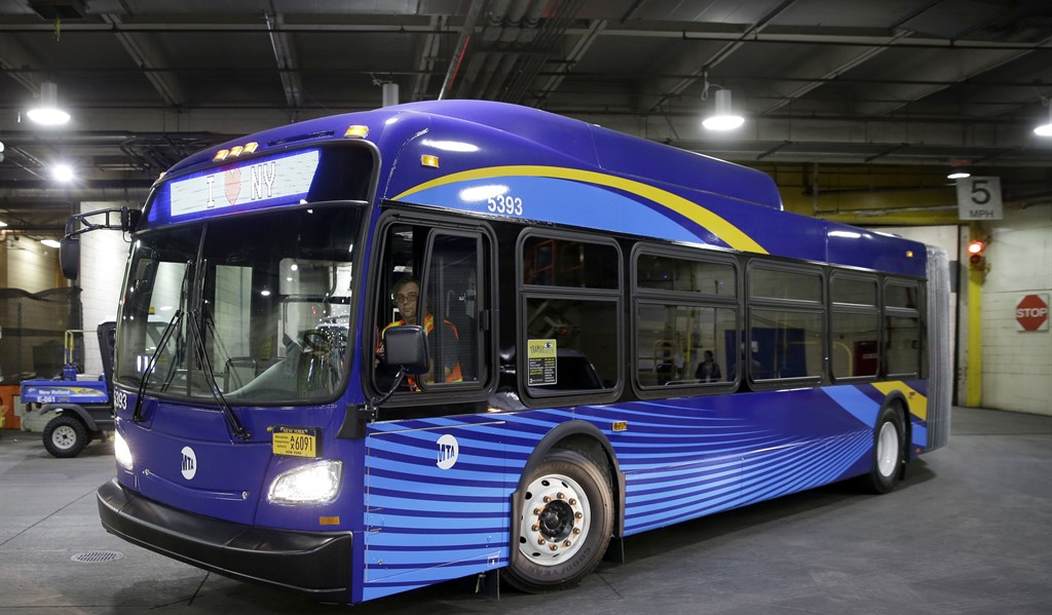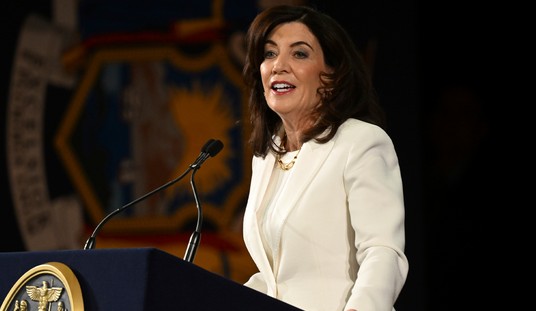As I was just saying in my last post, sometimes all you need to do to be considered a wild-eyed rebel in today's media landscape is to state the obvious. Enter Pamela Paul who has become one of my favorite columnists at the NY Times. Today she writes about the problem of fare jumpers in NYC.
If you missed this earlier post, the basic issue is that nearly half of NYC bus riders no longer pay the fare. They just get on the bus and ride for free. And something similar is happening on the subways, where just shy of 15% of riders don't pay. In both cases, this probably represents some kind of world record. No other city has transit riders who cheat this much. It's also costing the transit system hundreds of millions of dollars per year. So the obvious question has been what to do about it. Pamela Paul says the solution is obvious.
Every day, over a million New Yorkers neglect to pay for public transit in New York.
If it’s easy for New Yorkers to locate blame for the system’s problems, it’s harder to admit the reasons behind the public’s malfeasance. The truth is passengers don’t pay because they can get away with it. The harder truth is that the city lets them. And the hardest truth is that the best solution is more policing.
The reasons this obvious conclusion is considered off limits aren't hard to discern. As I described here, there's a racial aspect to this story which makes it radioactive in today's climate.
In the spirit of criminal justice reform, enforcement of fare compliance, like enforcement of laws against other petty crimes, was loosened. Well before 2020, critics of fare enforcement alleged that the aggressive police enforcement of the ’90s — which not surprisingly also coincided with the subway’s period of general improvement — disproportionately affected Black and Hispanic offenders and the poor...
Opponents of increased law enforcement, like the fantasists who advocate prison abolition, seem to operate in a world in which people always act according to their best instincts. It’s an elitist attitude that betrays a lack of experience with crime-ridden environments. Reality shows that when people know they can get away with crimes, they act accordingly
Nevertheless, failing to maintain basic order on the city's transit system will also come at a high cost eventually. Simply put, if people don't pay, services will be cut and quality will decline. In fact, if you compare NYC's system to others around the world, it already has declined.
On the London Tube, the seats have a pleasant fabric covering. It’s a small and relatively insignificant amenity, but its presence implies that the service cares about the comfort of its passengers and trusts them to respect public property. A similar gesture is almost impossible to imagine on New York City’s subway. Far easier to imagine is just how today’s passengers would trash it.
Paul notes that current riders on the subway during the day are as afraid as riders were when riding at night in 2017. Everyone senses that this has become a lawless zone where you don't dare speak up, much less interfere with whatever the deranged homeless person or gang member is doing. That's true even as some of these nuts are shoving strangers in front of trains. Those who do step up to defend others may wind up facing an angry mob of activists and the loss of their own freedom. There's no solution but to cower and hope you aren't the target of whatever chaos happens to be swirling that day. That's the current mindset it seems.
The good news is that a lot of readers get it. Here's the top comment:
When we made the subways and the streets safe, NYC prospered. People went out, patronized businesses, had fun. It was a win-win for all in many ways (except the criminals).
This comment gets to the heart of the matter.
Enforcing the law is NOT racist, even if it disproportionately affects people of color. That is a fundamental principle that needs to be understood. Also, like Paul said, enforcing the law disproportionately protects people of color as well, and if you ask racial subgroups about what they want in terms of policing, they either want the same level or MORE policing, not less. It's the liberal and progressive elite who have luxury beliefs (callout to Henderson) that are holding up progress on this issue. The mayor and police don't have enough monetary and social support to start a massive campaign of turnstile enforcement, but that's exactly what needs to happen. Well said.
One reader saw the column as a sign of hope for the future.
If a Times’ editorial page writer is acknowledging the importance of law enforcement and the success of the Broken Windows strategy, we can only hope other left wing political elements come to their senses as well. The utopian Defund the Police movement has done significant damage to blue jurisdictions and minority citizens everywhere. We can only hope this is a return to sanity.
Yes, we're still suffering from a defund the police hangover but reality has brought a lot of people back to their senses.







